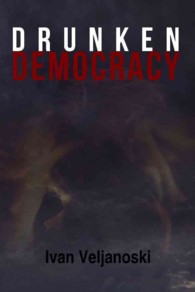- ホーム
- > 洋書
- > 英文書
- > Nature / Ecology
Full Description
Why do we find so many references to nature and the environment in the many Caribbean literary texts that try to come to terms with the contemporary age of globalization? Even when these novels and poems do not seem to be concerned with environmental issues at all, they abound with fragrant, creepy or dark references to flowers, insects, trees, gardens, and mud. This book discusses a range of Anglophone and Dutch-language Caribbean literary texts to propose an answer. It shows that some writers evoke nature to question oppressive notions of what is natural, and what is not, when it comes to race, gender, and desire. Other writers choose to counter the destructive dichotomies of wildness/order, nature/culture, nature/human that marked colonialism. Instead, they represent the environment as a field of interconnectedness, marked by intense semiotic interaction, in which human beings are also implicated. But writing about nature can also be a means to reconnect with the very foundations of life itself. In the most dramatic cases, references to nature evoke an extra-discursive space that then functions to subvert existing discourses. That space may even mark the site of the annihilation of discourse, or of the self. These texts suggest that, in times of globalization, it is only the dark, queer turn to matter that will free the path to imagining human existence in a new way.
The book's proposal to understand some of these fascinating texts as an effort to relate to the mind-baffling, explosive real is inspired by postcolonial trauma theory, posthumanism, and new materialism. However, Caribbean literature is a layered practice, that does much more than merely explore the world's materiality. It works simultaneously as cultural critique, counter-discourse, and as the manipulation of affect. This book therefore brings together ecocriticism with Caribbean and postcolonial studies, the study of globalization, trauma theory, the study of gender and sexuality, posthumanism and new materialism, to bring out the full complexity of these wise texts. Thus, it hopes to show its readers their extraordinary innovative potential.
Contents
1.Introduction: Writing the Earth in a Globalizing World
Part 1: Connectedness
2.Alterity: Trauma, Sexuality, and Nature as the Unspeakable Other
3.The Erotics of Mimesis
4.Are We All Connected? A Critique of Empathy
5.Exclusion: the Outside and the Outsider in Kincaid's writing
Part 2: Diversity
6.Dwelling: Olive Senior's Assaulted Landscapes
7.Trans-: Nature, Transgression, and Transience in Surinam
8.Diversity: Writers, Multiculturalists and Ecologists in the Netherlands
9.Opacity: On the Dutch Myth of Openness
10.Matter: the Last Word





